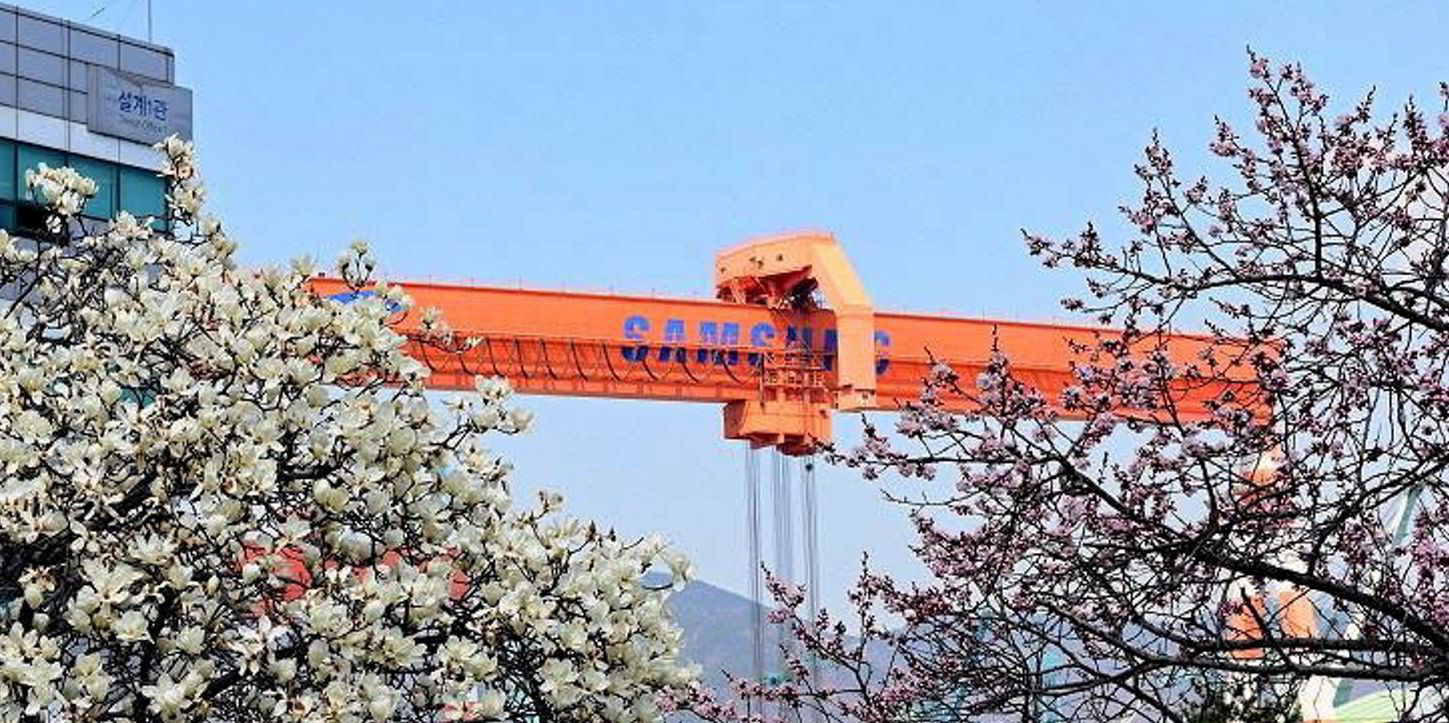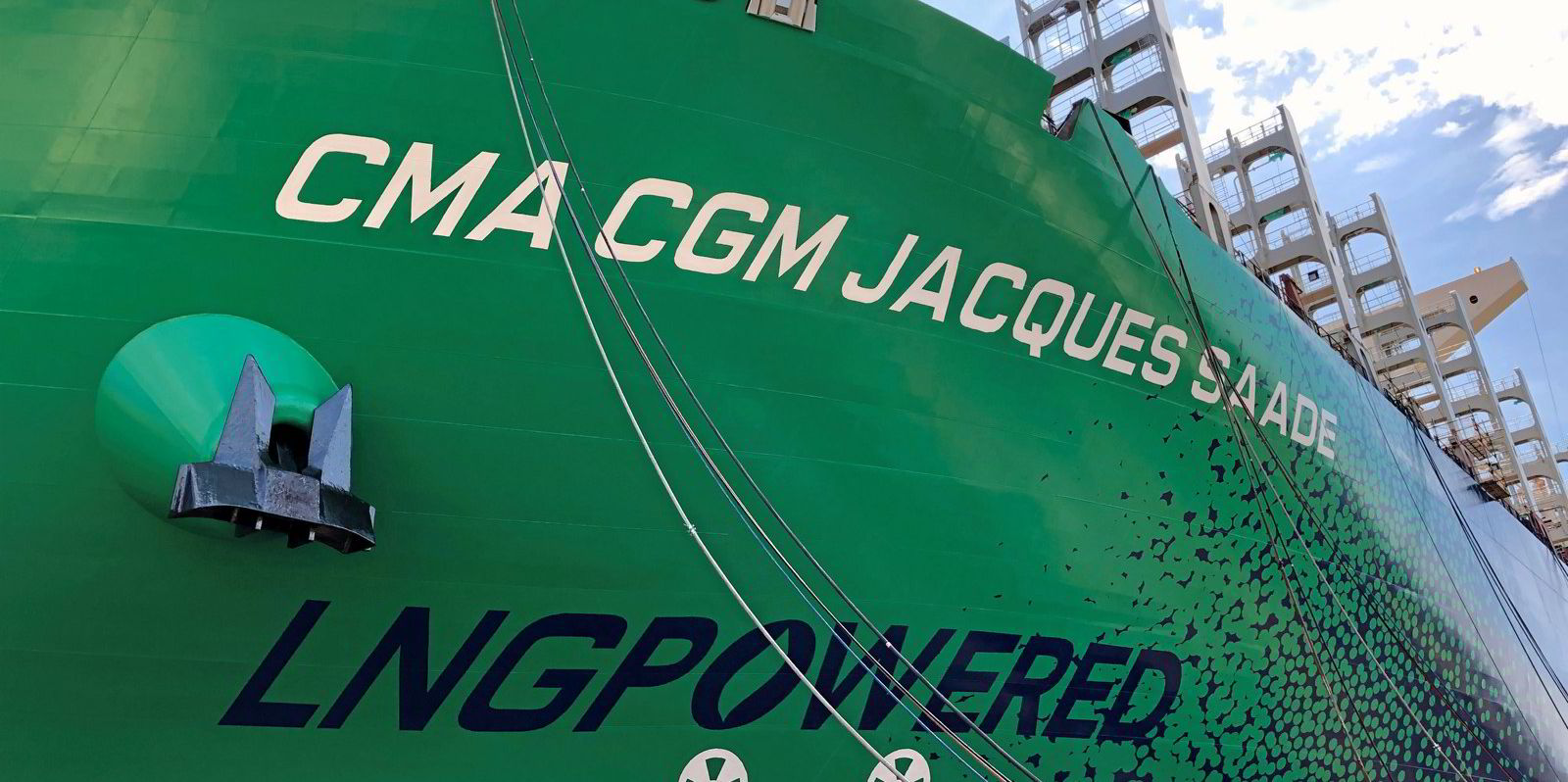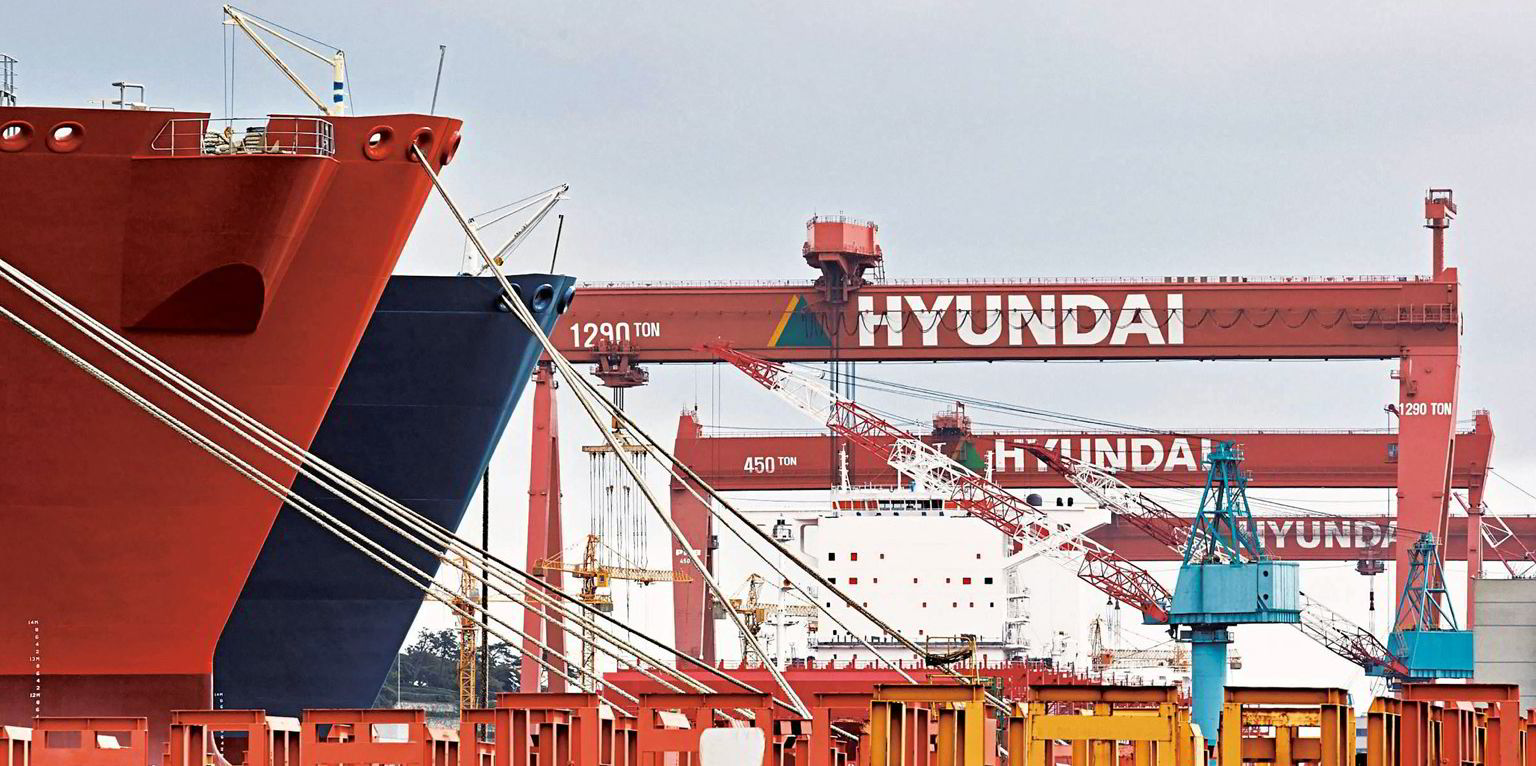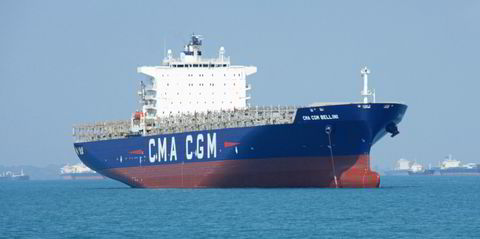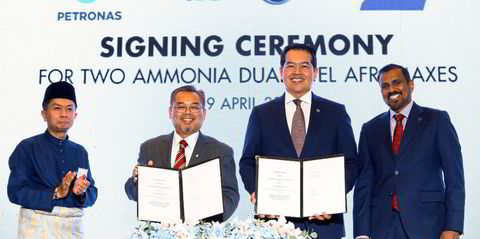Samsung Heavy Industry’s lack of success in the early stages of the current newbuilding supercycle could prove to be a winning strategy, according to a top shipbroker.
Affinity (Shipping) said the differentiator between equally capable yards has often been their luck at winning or losing business at certain points in the cycle.
The Richard Fulford-Smith-led shipbroker said a case in point is the big three South Korean shipyards — Hyundai Heavy Industries, Daewoo Shipbuilding & Marine Engineering and Samsung Heavy Industries.
“This time last year, and for the final quarter of 2020, DSME was in the ascendancy, winning the Hapag-Lloyd dual-fuel 23,000-teu container vessels, Zodiac Maritime’s 15,000-teu containership orders and then Shell’s 10 dual-fuel VLCC business, all in competition with their domestic contemporaries. Every deal they targeted, they won,” said Affinity (Shipping).
“Samsung by contrast, struggled to compete and seemed consistently to come third out of the big three.
“But, having recently signed contracts for six 7,000-teu dual-fuel containerships with CMA CGM at a price in the region of $120m each, Samsung looks either very smart or very lucky in taking orders later in the cycle.”
Affinity (Shipping) said the DSME 15,000-teu containerships for Zodiac Maritime were contracted at about $105m to $110m each and the Hapag-Lloyd ships at $155m each.
“They were all contracted before the steel price started surging, imposing horrible margins as the cost of doing business at a time when all the yards were desperate — and ALL the yards wanted the business,” the shipbroker said.
“Not being competitive last year seems to have been a very productive, if accidental, strategy.”
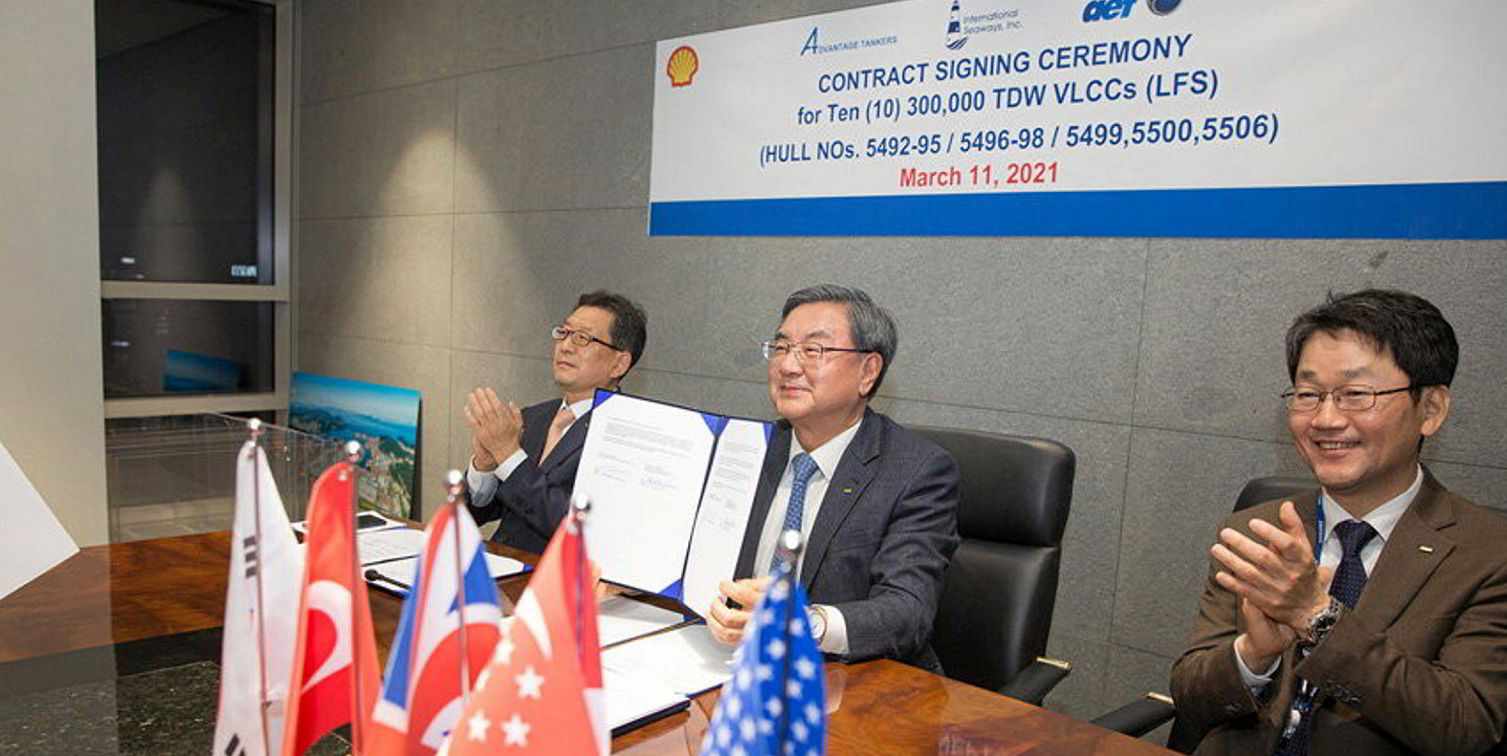
Despite the margins, Affinity (Shipping) said all the yards have “done brilliantly with order volumes a world away from even the most fanciful predictions a year ago”.
“DSME and HHI have now already cruised past their sales targets for the year whereas Samsung are closing in even on their revised sales target of $9.1bn having taken close to $8bn already this year,” the shipbroker said.
“Although in third place in terms of order volumes for the year, it could be argued that Samsung may have had the best year as orders taken later have generally been more expensive.”
Affinity (Shipping) added that all margins at this stage were estimates so the proof will be in yard results in the coming years when the “vagaries of when contracts were signed, the contract price, the exchange rate, the assumed steel price at the time and the actual cost of the steel when purchased work themselves out”.
SHI is hoping a $1bn share sale to help pay down debt and growing demand for new vessels will allow it to end years of losses and return to profit in 2023.
According to SHI’s management, it is confident of recording more than its 2021 new order target of $9.1bn considering its potential fourth quarter order pipeline.
These new orders include Qatar’s raft of LNG newbuildings, outstanding LNG carrier newbuilding options, shuttle tankers and orders worth $2bn related to the Bonga floating production, storage and offloading vessel project.
“The rapid growth in global trade in the second half of last year has put many shipping companies in a better position to order new vessels,” SHI chief executive Jin-Taek Jung recently told Bloomberg.
“We expect the order market to further improve next year as stricter environmental rules will be implemented.”
